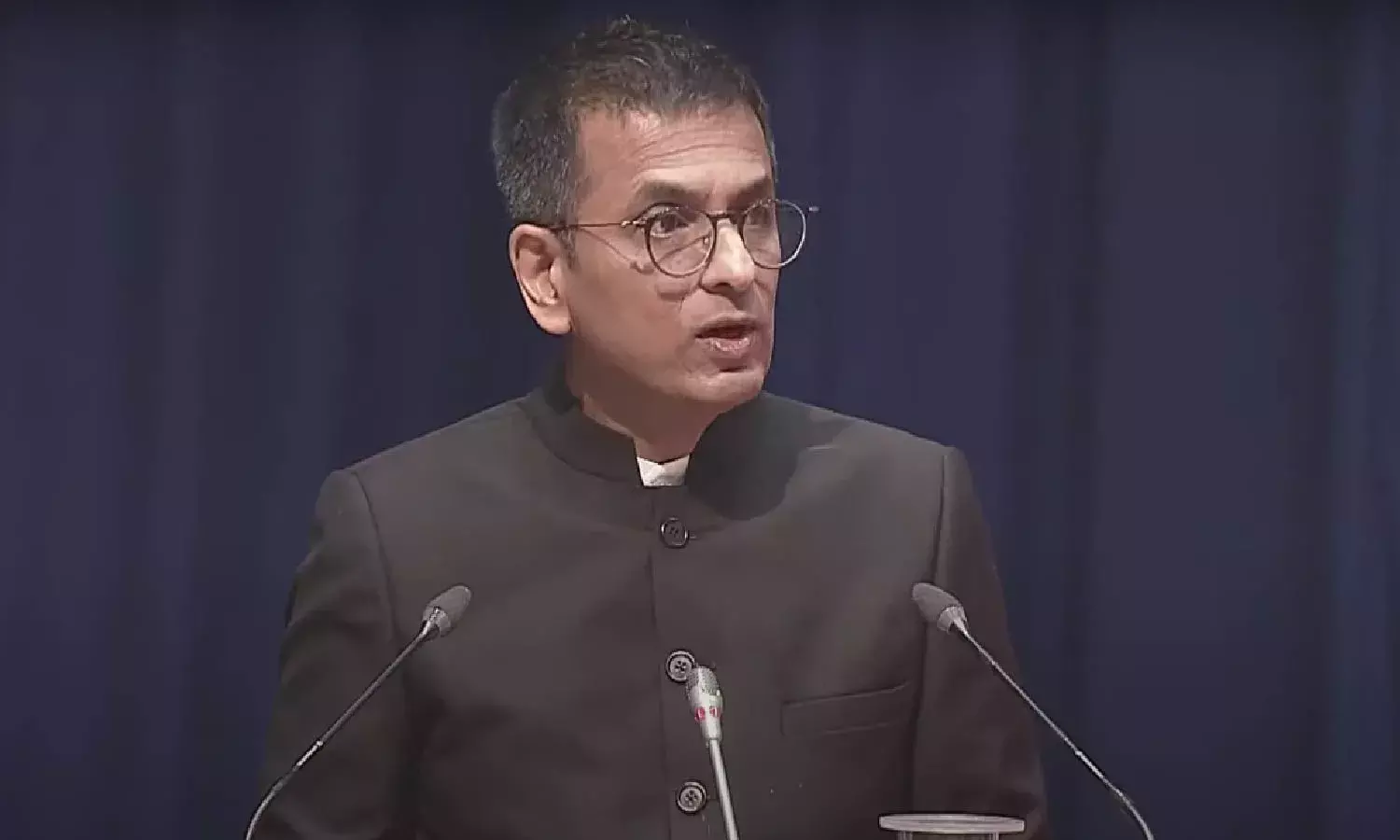Chief Justice Chandrachud Once Again Calls For Regulation Of Social Media

Chief Justice DY Chandrachud in his recent speech at the 14th Justice V.M. Tarkunde Memorial Lecture has called for regulation of content on social media. In April this year, Chief Justice Chandrachud had complained about being "trolled" on social media, during the hearing of the same-sex legalisation case.
Earlier, while speaking at a public event, Chief Justice Chandrachud had complained that Judges are having to face the "threat" of being "trolled" by people who do not share the same point of view. "For every little thing that we do, and believe me, as judges we are no exception to this, for everything that you do, you face the threat of being trolled by someone who does not share your point of view," the CJI had said. Social media then did not react kindly to his remarks.
In his latest speech, the CJI said that the "unprecedented proliferation of disinformation and hate speech on the internet" has offered a serious challenge to the traditional ways of understanding free speech in a democracy.
"There has been a plethora of discussion in recent times about the consequences of disinformation, the need for a regulatory mechanism and the free-speech concerns raised by such legislation or policies. Most criticisms of global ‘anti-fake news’ legislation are based on concerns that such legislation is overbroad and prone to misuse, thus, restricting legitimate speech as well. Such issues about how to define disinformation and prevent selective misuse are essential, however, they put the cart before the horse", he said.
He said that all liberal democracies purport to protect the right to ‘free speech and expression’ but that the application of this principle to concrete situations is contested. The presence of laws against, inter alia, defamation, incitement to violence and contempt of court indicate that the free-speech protection does not extend to all acts of communication, he said. "In deciding the contours of this protection, therefore, courts and lawmakers are applying a certain theoretical understanding of free speech. Where can disinformation be located in these theories?", he added.
He said that "demonstrably false facts are not protected by traditional free speech theories" and that disinformation can't be part of the ‘marketplace of ideas’. "With the advent of troll armies and organized disinformation campaigns across different social media platforms, the fear is that there is an overwhelming barrage of speech that distorts the truth", the CJI said.
Chief Justice Chandrachud said that we cannot fall back on traditional notions of free speech and must find new theoretical frameworks to locate free speech on the internet.
He also spoke about Big-Tech social media companies and the control they wield. "With corporations wielding such immense power, there is an immense amount of trust placed on them to act as the arbiters of acceptable and unacceptable speech – a role that was earlier played by the state itself. This can have disastrous effects", he said.
The CJI was speaking on the subject "Upholding Civil Liberties in the Digital Age: Privacy, Surveillance and Free Speech".
Following a speech delivered by Chief Justice Chandrachud last month, an advocacy group called ‘Dalit Positive Movement’ from Kanpur Uttar Pradesh had written to him objecting to his comments during the speech about Scheduled Caste reservation for Christians and Muslims, an issue that is presently under consideration of a different bench of the Supreme Court, terming the comments "most unfortunate".

